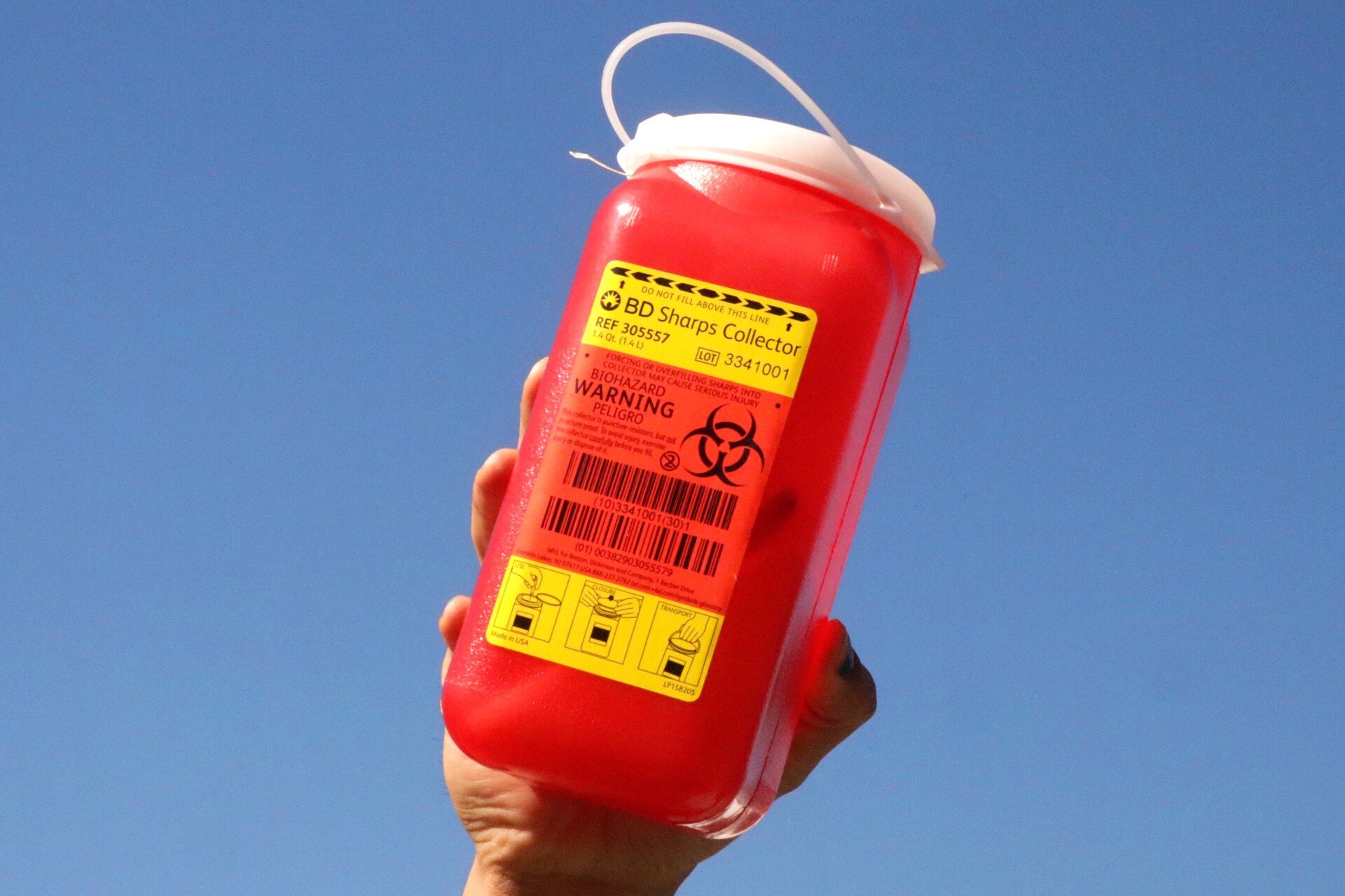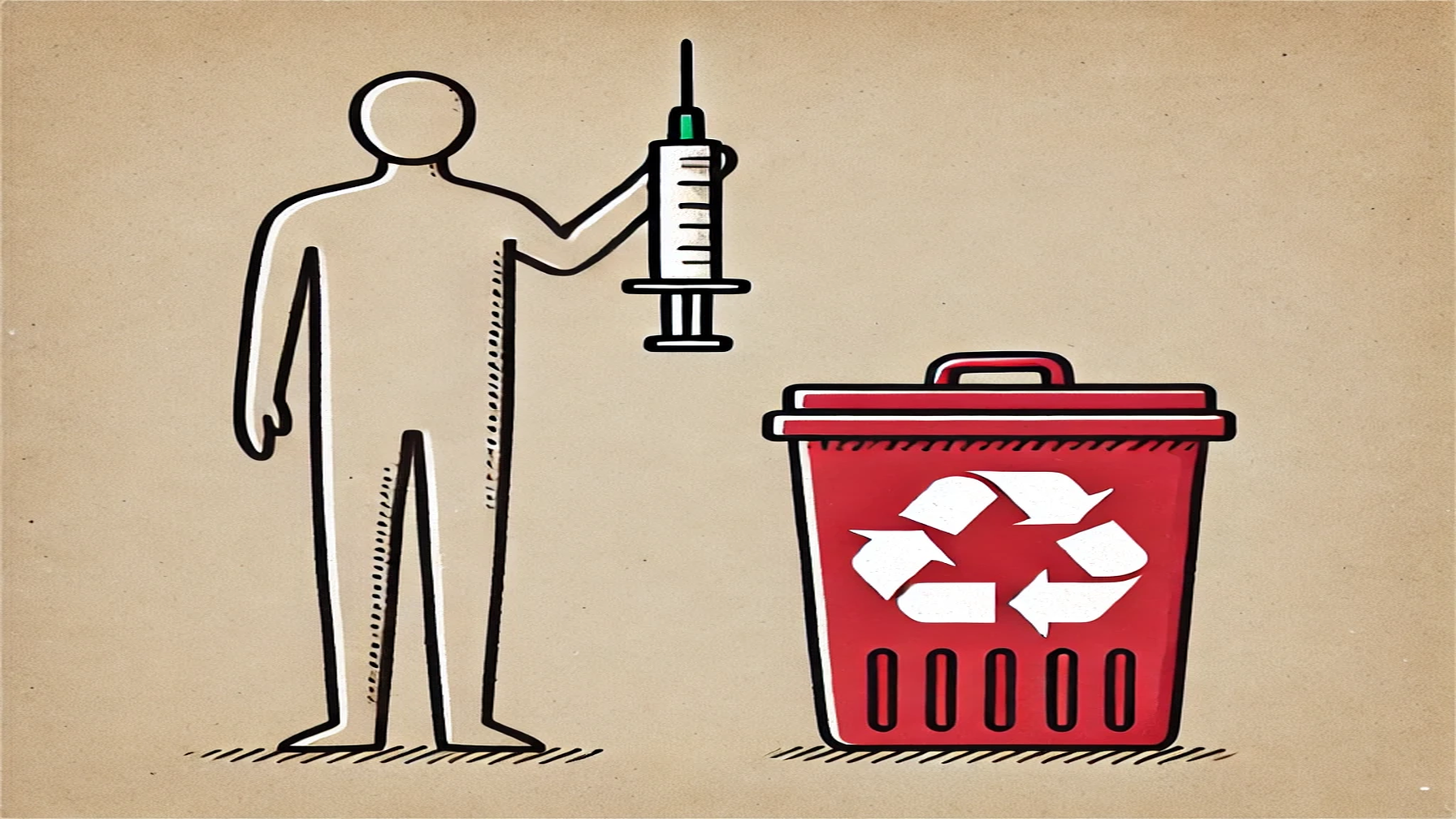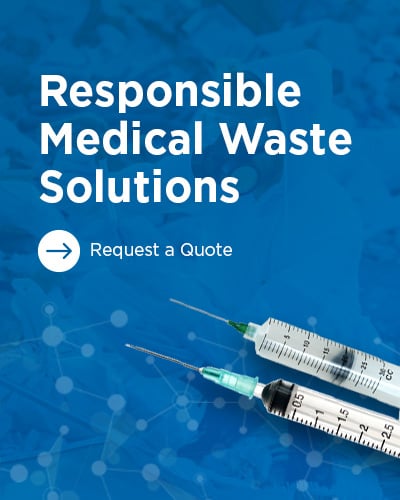There’s a growing gap in how patients are supported after their prescriptions are filled. And the issue is only getting bigger as injectable medications become more common, especially for chronic conditions like diabetes, obesity, autoimmune disorders, and fertility treatments. While telehealth and online pharmacies have made access to these medications easier than ever, one crucial piece of the puzzle is still being ...
Proper disposal of medical sharps and other hazardous waste isn’t just a healthcare best practice. It’s a public safety necessity. But for many people who inject at home, whether they’re managing chronic conditions like diabetes, rheumatoid arthritis (RA), or multiple sclerosis, undergoing fertility treatments like IVF, or using GLP-1 medications for weight loss, finding a convenient, compliant, and safe way to dispose of ...
As GLP-1 medications continue to grow in popularity for both diabetes management and weight loss, patients are often faced with a key decision: should you take your medication as a weekly injection or a daily pill? While oral options like Rybelsus offer convenience in theory, the science and clinical results tell a different story. Injectable GLP-1 drugs such as Ozempic, Wegovy, and Mounjaro continue to outperform their ...
GLP-1 medications have become a regular part of life for many people managing diabetes or pursuing weight loss. But as travel becomes more frequent, whether for business or vacation, so does the need to navigate injectable medication on the go. If you’ve ever wondered whether you can travel with your GLP-1, or how to properly dispose of sharps while away from home, the good news is: yes, you can travel safely and legally. But ...
Regulatory Changes Are Shaping the Cost of GLP-1 Medications In December 2024, the U.S. Food and Drug Administration (FDA) announced the resolution of the tirzepatide shortage. Which is the active ingredient in Eli Lilly’s Mounjaro and Zepbound. During the shortage, compounding pharmacies were allowed to produce versions of tirzepatide to help meet demand. However, now that the shortage is resolved, the FDA is requiring ...
The Growing Problem of Medical Waste and Sharps Disposal Every year, millions of used needles and syringes are discarded, which can create significant environmental and public health risks. Individuals who self-inject medications, such as those managing diabetes, hormone therapy, or weight-loss treatments, often lack clear and sustainable options for disposing of their sharps. Traditional disposal methods, including placing ...
Every day, healthcare facilities, pharmacies, and homes generate medical waste. Items like used needles, syringes, and other sharps or medical waste. While these materials are essential for treating illnesses and managing health, their improper disposal poses significant risks to people and the environment. This issue is more than just a healthcare problem; it’s a community-wide concern that affects us all. Why Improper ...
The rise of GLP-1 injectable medications, such as those used for diabetes management and weight loss, has been nothing short of a pharmaceutical phenomenon. In 2023 alone, the demand for GLP-1 meds skyrocketed, with global sales expected to exceed $12 billion by 2025, according to a report by Fortune Business Insights. It shows that there are more patients embracing injectables as part of their health and wellness journey. ...
As more patients manage their medical treatments at home, generating sharps and other medical waste, they often face a frustrating lack of guidance on safe disposal methods. Patients who are motivated by concerns for their health, safety, and the environment are frequently left to find disposal solutions on their own. Which can add stress to their healthcare routine. Our recent PureWay survey highlights this challenge and ...
Insight for Healthcare Professionals The healthcare industry, inherently challenged with ongoing and potentially hazardous situations, demands strict adherence to safety regulations to protect both staff and patients. With increasing responsibilities and staffing challenges, healthcare professionals often find it challenging to keep up with the requirements set by the Occupational Safety and Health Administration (OSHA). A ...
Category
- sharps disposal (40)
- Medical Waste (38)
- sharps container disposal (37)
- sharps mail back (31)
- Compliance (27)
- Pharmaceutical Waste Disposal (17)
- Safety (17)
- Infection Control (13)
- Dental Practice (12)
- Hazardous Waste (11)
- OSHA (11)
- biohazardous waste disposal (11)
- #GLP1 (10)
- patient support programs (10)
- News (9)
- Hazardous Waste Disposal (8)
- Universal Waste (8)
- amalgam disposal (8)
- vet sharps disposal (7)
- OSHA Training (6)
- amalgam separators (6)
- Diabetes (5)
- amalgam recycling (5)
- dental clinical waste disposal (5)
- Amalgam (4)
- Diabetes Mangagement (4)
- ECOII Amalgam Separator (4)
- medication disposal (4)
- quart containers (4)
- veterinary medical waste (4)
- Diabetes Awareness (3)
- News & Regulations (3)
- surface disinfectant (3)
- Diabetic Kit (2)
- HIPAA (2)
- flu vaccine (2)
- influenze (2)
- sharps disposal for veterinarians (2)
- BioSURF (1)
- HIPAA Compliance (1)
- HIPAA Law (1)
- HIPAA Violation (1)
- RP Returns (1)
- improving patient experience (1)















